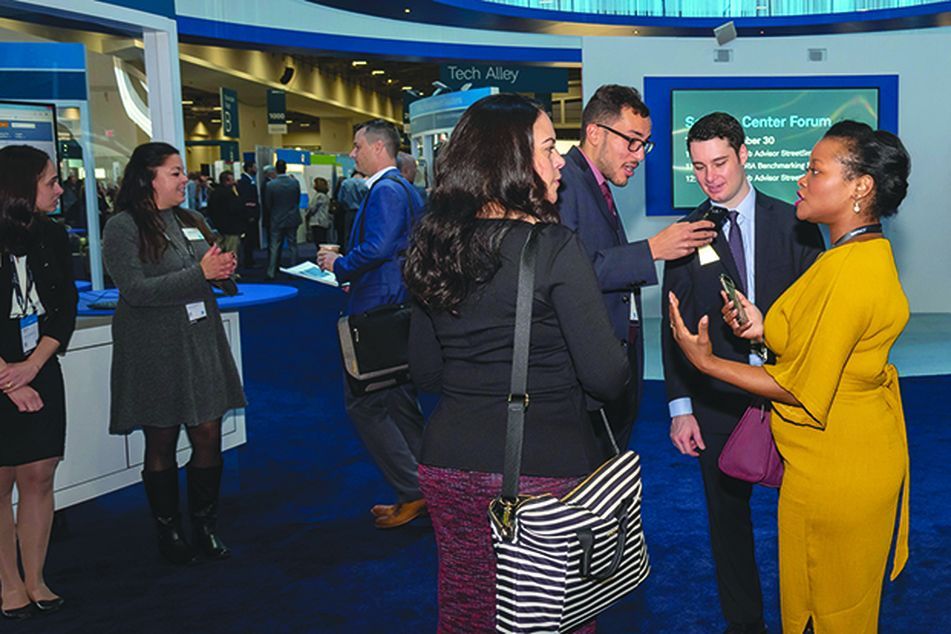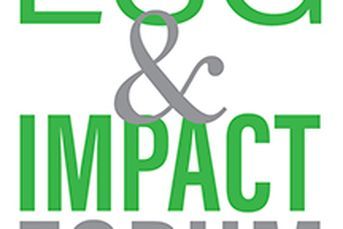The future of advice: Diverse talent & technology

Greater adoption of technology is the only way advisors will be able to profitably satisfy the demands of tomorrow's clients. Ironically, though, the latest tools will be successful only if they meet an old-fashioned, yet timeless, goal: delivering high-quality, personalized financial advice.
https://www.investmentnews.com/wp-content/uploads/assets/graphics src=”/wp-content/uploads2018/12/CI118190126.JPG”
As attendees at IMPACT learned in educational sessions and through discussions with providers in the bustling Tech Alley section of the exhibit center, greater adoption of technology is the only way advisors will be able to profitably satisfy the demands of tomorrow’s clients. Ironically, though, the latest tools will be successful only if they meet an old-fashioned, yet timeless, goal: delivering high-quality, personalized financial advice. And for that, the right technology will be only as good as having the right people to use it and being able to solve the problems that tomorrow’s clients will face.
The “right” people for advisory firms of the future are likely to be younger, more female, more diverse and increasingly specialized in their skills, according to experts taking part in the conference, who stress that a shift in thinking about the industry’s human capital needs is necessary for several reasons.
“Widening the industry’s talent base is both a ‘head’ and a ‘heart’ issue,” said Leslie Tabor, managing director at Schwab Advisor Services and moderator of an IMPACT think tank on inclusion and diversity. “It’s good for business in that it contributes to greater innovation, smarter decisions and the ability to tap into underserved markets. And it’s important, too, because advisors are motivated to do the right thing.”
At the think tank, panelist Marilyn Mohrman-Gillis, executive director of the CFP Board Center for Financial Planning, discussed research findings reported at her group’s recently concluded diversity summit.
“Only 3.5% of CFP professionals are black and Latino, a dismal and a very challenging data point,” she said, noting that the lack of diversity is harming the business.
“Black families’ average net worth has increased by 33% over the last 14 years. And the top fifth of Latinos — more than 2.1 million households — have an average wealth of $400,000,” she said. “Study after study shows that financial performance increases with diversity. It is also an imperative in terms of the sustainability of our profession. We currently have more CFP professionals over the age of 70 than under the age of 30, and the generation that is replacing that aging workforce values and expects to see diversity in the workplace.”
Participants in the IMPACT think tank session produced several suggestions for increasing inclusion and diversity: establishing mentoring and internship programs, increasing recruitment efforts aimed at attracting minorities and making a long-term commitment to financial education for students of all ages and the general population.
“Other efforts that work include one-and two-year residency programs for new financial planning graduates, or those in transition, to help them on their career path. Beginning this year, we invited students from historically black colleges and universities (HBCUs) and Hispanic Serving Institutions (HSIs) to attend IMPACT, which allowed us to strengthen their awareness of the RIA profession and connect them directly to our advisors. Establishing relationships with diverse colleges and universities can be another approach to help firms achieve greater diversity within their workforce,” said Ms. Tabor. “The main thing is to be aware of the need and to start doing something, no matter how seemingly small, to get the momentum rolling and prepare for tomorrow.”
Two of the most pressing issues that tomorrow’s firms will face involve demographics — namely, a decline in the relative number of younger people compared with a vast increase in the number of those in their 80s, 90s and older — and health-care costs that consume a greater share of national and personal wealth.
“Our business, which has evolved from product-pitching to planning-based advice, is moving to longevity-based advice,” said John Diehl, senior vice president of strategic markets at Hartford Funds. “Increasingly, advisors will be called upon to find the best place for an aging mom or dad, how to start a new business at 70 or whether to buy or lease a car. The future of advice is education and connecting people to the resources they need.”
Because health-care costs currently are a major expense for older clients and are likely to become more costly in the future, health care also will become an increasing focus of the advisory business. Peter Stahl, founder of Bedrock Business Results, told IMPACT attendees that advisors will have to become more knowledgeable not only about Medicare and Medicaid, but also about health savings accounts and custodial care, as well as about the tax consequences and complex interconnections among them all, including Social Security.
Fortunately, technology will be able to help advisors meet demographic and health-care challenges.
“Americans age 60 and over are the biggest buyers of technology,” Mr. Diehl said, so more clients will be able to work with advisors who use tech tools to address health and aging needs. He and Mr. Stahl also noted the increasing number of software applications and online tools that are becoming available in this area.
In the firm of the future, an advisor’s circle of referrals will have to go beyond estate attorneys and accountants, Mr. Diehl noted.
“Older clients helping their even older parents age in place — and maybe those parents themselves — will be asking if you know kitchen and bathroom remodelers.”
Learn more about reprints and licensing for this article.






